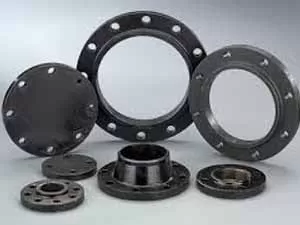Introduction
Carbon steel flanges are essential components in piping systems across industries. They connect pipes, valves, pumps, and other equipment securely. With their strength and affordability, they are widely preferred in global projects.
Fortis Forge, a trusted name in forging, supplies high-quality carbon steel flanges. Their products meet international standards, ensuring reliability and safety in demanding environments.
This blog explores carbon steel flanges, their types, applications, benefits, and industry outlook.
What Are Carbon Steel Flanges?
A carbon steel flange is a forged component used to connect two pipe sections. It creates a secure joint that can be assembled or disassembled with bolts.
Carbon steel provides high tensile strength and durability. It handles high pressure and temperature while offering cost benefits compared to stainless steel.
Key Features
High strength-to-weight ratio
Leak-proof sealing when properly installed
Compatibility with high-pressure systems
Lower material cost than other alloys
Flexibility in assembly and maintenance
Types
Industries rely on multiple types of flanges, each serving specific purposes.
1. Weld Neck Flanges
These flanges have a long tapered hub. They distribute stress evenly and work well in high-pressure pipelines.
2. Slip-On Flanges
Slip-on flanges slide over the pipe end and are welded from both sides. They are cost-effective and easy to install.
3. Blind Flanges
Blind flanges close the end of a pipeline. They allow inspection, cleaning, or future extensions.
4. Socket Weld Flanges
These flanges fit small-diameter pipes. They are welded at the socket end, creating strong, leak-proof connections.
5. Threaded Flanges
Threaded flanges connect pipes without welding. They are ideal in explosive environments where sparks must be avoided.
6. Lap Joint Flanges
Lap joint flanges work with stub ends. They are cost-effective and allow easy alignment in large systems.

Applications
They are indispensable in multiple industries due to their versatility.
Oil and Gas Industry: Used in high-pressure pipelines and refineries.
Petrochemicals: Handle corrosive fluids with protective coatings.
Power Plants: Ensure safe transport of steam and water.
Construction: Used in fire protection and HVAC systems.
Shipbuilding: Support marine pipelines with anti-corrosion finishes.
Water Treatment: Simplify assembly of large pipelines.
Benefits
Strength and Durability: Handle stress, vibration, and thermal expansion.
Cost-Effectiveness: More affordable than stainless or alloy steel.
Easy Maintenance: Can be disassembled for cleaning or replacement.
Leak Prevention: Provide strong seals when paired with gaskets.
Wide Availability: Produced in different sizes and pressure ratings.
Grades of Carbon Steel Used in Flanges
They are manufactured from different grades, depending on service conditions.
ASTM A105: Widely used in forged flanges.
ASTM A350 LF2: Suitable for low-temperature services.
ASTM A694 (F42 to F70): Designed for high-pressure pipelines.
International Standards for Carbon Steel Flanges
To ensure compatibility and safety, They must meet global standards.
ASME/ANSI B16.5: Covers pipe flanges and fittings.
DIN Standards: Used across European industries.
API 6A/6B: Defines oil and gas applications.
BS 3293: Specifies steel flange dimensions.
Fortis Forge – Manufacturing Excellence
Fortis Forge follows strict quality processes while manufacturing carbon steel flanges.
Their Process Includes:
Selection of premium raw materials
Forging at controlled temperatures
Heat treatment for durability
Precision machining for accuracy
Rigorous testing for performance
This ensures long-lasting and reliable products for industries worldwide.
Global Market Trends for Carbon Steel Flanges
The global market for carbon steel flanges is growing steadily. Industrial expansion and infrastructure projects boost demand.
Growth Drivers:
Oil and gas exploration activities
Expansion of power generation projects
Rising chemical and petrochemical production
Global investment in water treatment plants
Challenges Facing the Industry
Despite growth, challenges exist for manufacturers and buyers.
Raw material price volatility impacts costs.
Counterfeit products reduce reliability and trust.
Corrosion risks demand protective coatings.
Compliance with international standards increases expenses.
How to Select the Right Flange
Choosing the correct flange ensures safety and performance.
Check operating pressure and temperature.
Match pipe size and wall thickness.
Select the appropriate material grade.
Ensure compliance with relevant standards.
Consider ease of installation and maintenance.
Conclusion
They remain vital components in modern industries. Their affordability, strength, and versatility make them a preferred choice worldwide.
Fortis Forge stands as a reliable supplier of carbon steel flanges. Their products support critical industries, ensuring safe and efficient piping systems.
As industries evolve, They will continue to play a crucial role in infrastructure and energy projects.
